
We kindly inform you that, as long as the subject affiliation of our 300.000+ articles is in progress, you might get unsufficient or no results on your third level or second level search. In this case, please broaden your search criteria.


KEY FINDINGS ››› In Member States there are various forms of cooperation between customs and border guards: Strategic planning, communication and exchange of information, coordination of workflow at border crossing points (BSPs), joint risk analysis, joint criminal investigations, joint special operations and control outside BCPs („blue” and „green” borders), use of joint mobile groups, joint professional training. ››› Cooperation aims to enhance effectiveness of securing the external borders of the EU and the Customs Union, as well as efficiency that makes best use of the limited financial resources of the two institutions. ››› Cooperation challenges that customs and border guards face comprise legal and operational obstacles, different institutional cultures, and political pressure over the management bodies of the two institutions. ››› Bulgaria falls into a group of Member States where the level of cooperation between customs and border guards is most limited and often characterized by mistrust and competition. ››› The Government of Bulgaria, the Customs Agency and the Border Police should adopt best cooperation practices in order to increase the security of the external borders of the European Union.
More...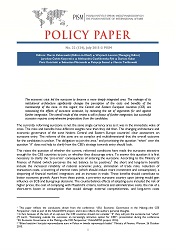
Terrorists constantly seek the spotlight and attacking major sporting events constitutes a seemingly perfect springboard for global notoriety. As the XXII Olympic Winter Games in Sochi are nearing, the global public is understandably concerned about the July 2013 North Caucasian jihadi threats to either disrupt the Games or prevent them altogether. Are the recent Volgograd bombings all the terrorists could muster in anticipation of the Olympics or is there more to come? It is worth analysing some of the options the Caucasus Emirate might be considering in relation to their stated intent to disrupt or force the cancellation of the Olympics. All of the options are derived from information on previous terrorist attacks on other sporting events that could provide clues for counter-terrorism authorities in Russia and neighbouring countries to use when securing these Olympics.
More...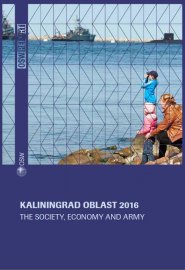
Moscow has been developing a new model of governance for Kaliningrad Oblast in 2016. The changes in the regional government (the governance of the oblast was entrusted to people sent from Moscow and had no links with the region) were part of it. These are a result of Russia’s depleting financial resources and austerity policy, the increasing militarisation of the Russian Federation and the important role the oblast plays in this policy, and the need to ensure a satisfactory result in the upcoming presidential election. Although there are at present no visible symptoms suggesting an intensification of protest sentiments, Moscow is taking preventive action to try to tighten its grip on local elites and residents. Kaliningrad Oblast remains an essential element of the Russian military strategy in the Baltic region. This is borne out by the deployment in the region of S-400 air defence systems, ships equipped with Kalibr missiles, and Bastion missile defence systems (which are nominally anti-ship weapons but are also adjusted to attacking ground targets). Furthermore, the deployment of Iskander missile systems has been launched which enables the creation of a so-called ‘Anti-Access/Area Denial’ (A2/AD) zone, extending the range of Russian weapons to the territories and airspace of the neighbouring NATO member states.
More...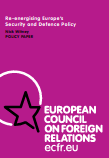
Ten years after the launch of the EU’s defence effort at a Franco-British summit in St Malo, the European Security and Defence Policy badly needs a shot in the arm. Procrastination, weak coordination, and persistent absenteeism by some Member States have hobbled the Union’s ability to tackle the real threats to its citizens’ security, and to make a significant contribution to maintaining international peace. Europe’s leaders have agreed what is needed, in the 2003 European Security Strategy. They have acknowledged that security for Europeans today lies not in manning the ramparts or preparing to resist invasion, but in tackling crises abroad before they become breeding-grounds for terrorism, international trafficking, and unmanageable immigration flows. As this report will argue, this situation demands a concerted effort to revitalise the European Union’s Security and Defence Policy (ESDP). The EU’s individual Member States, even France and Britain, have lost and will never regain the ability to finance all the necessary new capabilities by themselves. Today, only cooperation amongst Europeans can eliminate the massive waste associated with the duplication of resources by Member States, and help transform Europe’s armed forces into modern militaries capable of contributing to global security.
More...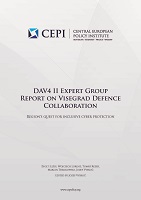
Polish Institute of International Affairs presents a joint policy report: Region’s Quest for Inclusive Cyberprotection, prepared in the framework of the research project Defence Austerity in the Visegrad Region II – DAV4 II, funded by the Interantional Visegrad Fund (IVF). The authors of the report argue, that the Visegrad countries could become an avant-garde of cyberdefense policy, if only they decided to include cybersecurity in the agenda of their political consultations and practical collaboration. The policy report, which also aims to contribute to the debate about the the landscape of threats in cyberspace, was prepared by Central European Policy Institute (Slovakia), in cooperation with PISM (Poland), International Centre for Democratic Transition (Hungary) and Jagello 2000 (Czech Republic).
More...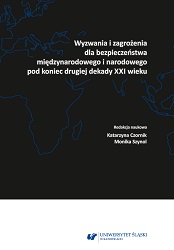
This publication aims to diagnose the most important threats to international and national security at the end of the second decade of the 21st century. The emphasis has been placed on presenting the main challenges and threats that occur in the European and global system of international security. What constitutes an important objective of the collection is to show how the international security system has evolved on the regional – both European and global – scale in the second decade of the 21st century, and to point out the challenges and threats to national and international security connected with it. It is important not only to identify the current threats, but also the potential ones, against which measures can be taken already today thanks to an accurate “interpretation” of the developments in the international security system, both in individual regions of the world and on a global scale. One of the objectives of the collection is to show some threats to internal and external security of Poland, especially in the context of increased threats of terrorism and illegal migration.
More...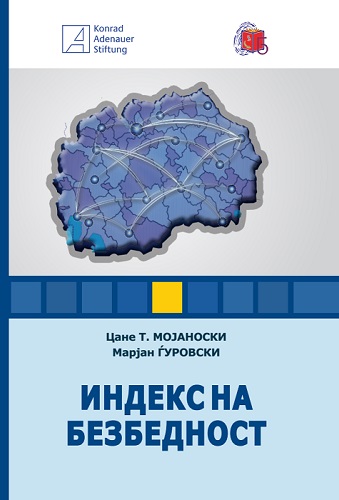
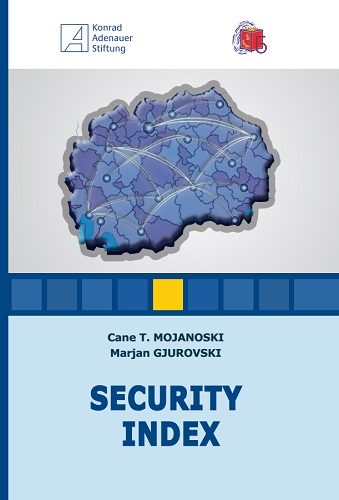
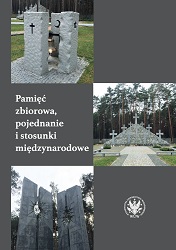
The book is devoted to the role of memory in international relations. The point of departure for this reflection is the Holocaust, and to some extent also other crimes resembling ethnic cleansing and 20th-century homicide. The book concerns also other topics, such as reconciliation and ways of achieving it, the role of historical memories, the issues of migrants living between the old and the new homeland.
More...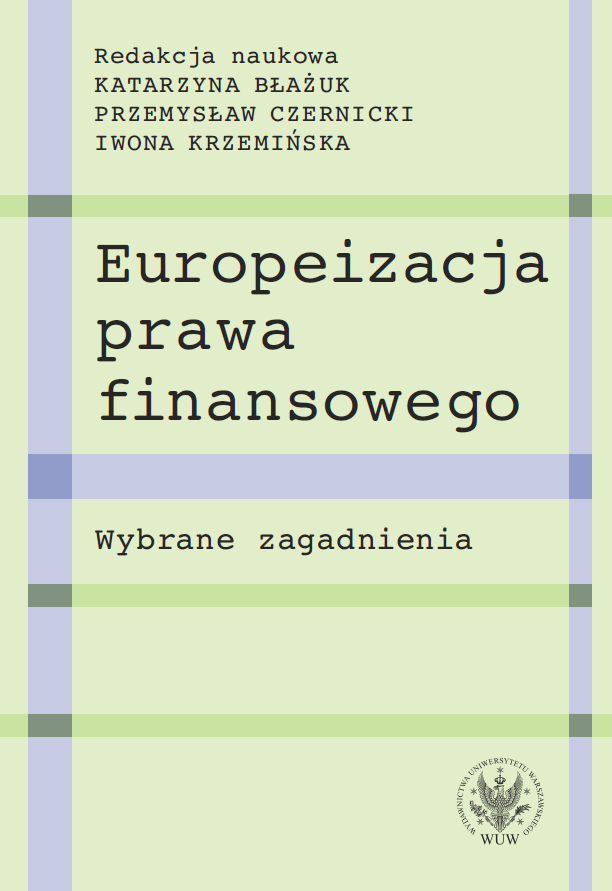
A selection of examples of Europeanisation in Polish financial law. The authors – young scientists from different Polish academic centres – consider in their analyses the influence of the current crisis on the process of changes in the financial sphere of economy. The texts discuss various economic, legal, social and political issues connected with building a single European financial market, unifying the tax system and tackling the current economic crisis at a European level.
More...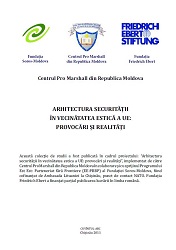
The round table in Chisinau involved in discussions experts from Austria, Bulgaria, the Czech Republic, Estonia, Georgia, Germany, Latvia, Lithuania, Moldova, Norway, Poland, Romania, Switzerland and Ukraine, the discussions being preceded by several meetings with people with decision-making power and relevant personalities / representatives of NGOs from the Republic of Moldova. // The main purpose of the discussions was to raise public awareness and facilitate public debate on issues related to the reform of the security system of our country and to develop a unique approach between decision makers and civil society representatives on the future of security of the Republic of Moldova. existing in the new EU Member States. Another aim was to learn from the knowledge gained by European countries in the field of various security models.
More...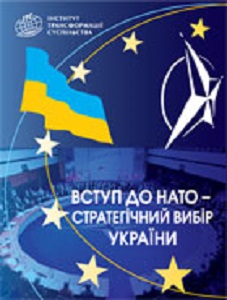
The scientific and methodological publication "NATO Accession - Ukraine's Strategic Choice", published in the form of a collective monograph, aims to provide scientific and methodological and methodological assistance to increase conscious support for society, especially the regional community, Ukraine's accession to NATO by informing citizens on Euro-Atlantic integration. principles of creation and activity of regional centers of Euro-Atlantic integration in Ukraine with active involvement in their work of local authorities, higher and general educational institutions, public organizations. The book consists of four chapters: Accession to NATO - a guarantee of national security and independence of the state (I); Advantages of Ukraine's accession to the North Atlantic Treaty Organization (II); Citizens' Information System on Euro-Atlantic Integration of Ukraine (III); A new approach to the study of public opinion on Ukraine's Euro-Atlantic integration based on the experience of post-communist NATO member states (IV). The authors of the collective monograph are leading Ukrainian and foreign scientists, statesmen and public figures, teachers and diplomats. The scientific and methodological publication contains "Model of creation and operation of Euro-Atlantic integration centers in the regions of Ukraine" and "Model of study and formation of public opinion on Euro-Atlantic integration of Ukraine", developed by the Institute for Social Transformation. The book has scientific, methodological and practical significance. It allows to unite the potential of local authorities, scientists, educators, public figures to hold informational and educational events in the regions of Ukraine in order to promote the idea of Euro-Atlantic integration and increase the number of its supporters.
More...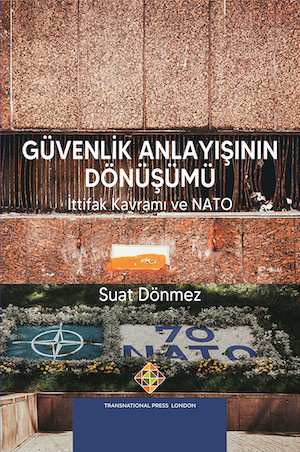
Günümüzde uluslararası güvenlik ortamını anlamak ve uluslararası diplomasinin yöntemleri hakkında yorum yapmak sadece akademisyenlerin degil, hayatın olagan akısı içerisindeki bireylerin günlük siyaset konusmak kadar kendilerinde hak gördügü bir alıskanlık haline geldi. Bence böyle bir hakkın kullanılabilmesi için en azından konu hakkındaki yazında bulunan bazı temel eserleri okumak çok gerekli ve medeni bir tavır. Bu kitap gerek konuyu kavrayısı gerekse dili bakımından ihtiyaç duyanların bu alandaki birçok eksigini kapatacak özellikte.– Doç. Dr. Savas BIÇER / Uluslararası Politika UzmanıBu çalısmada, dünya düzeninde meydana gelen degisimler ısıgında güvenlik anlayısının nasıl bir dönüsüm geçirdigi ortaya konulmaktadır. Güvenlik, güç, güç dengesi ve ittifak kavramlarına kuramsal bir bakıs açısıyla yaklasılmakta, uluslararası iliskiler ve güvenlik alanında çok önemli bir yere sahip olan NATO ittifakı irdelenmektedir. Uluslararası ilisikleri disiplini için çok önemli bu kavramları anlamak açısından basucu niteliginde bir kitap düsünüyorum.– Doç. Dr. Zeynep Banu DALAMAN / Sosyolog, Siyaset Bilimci.
More...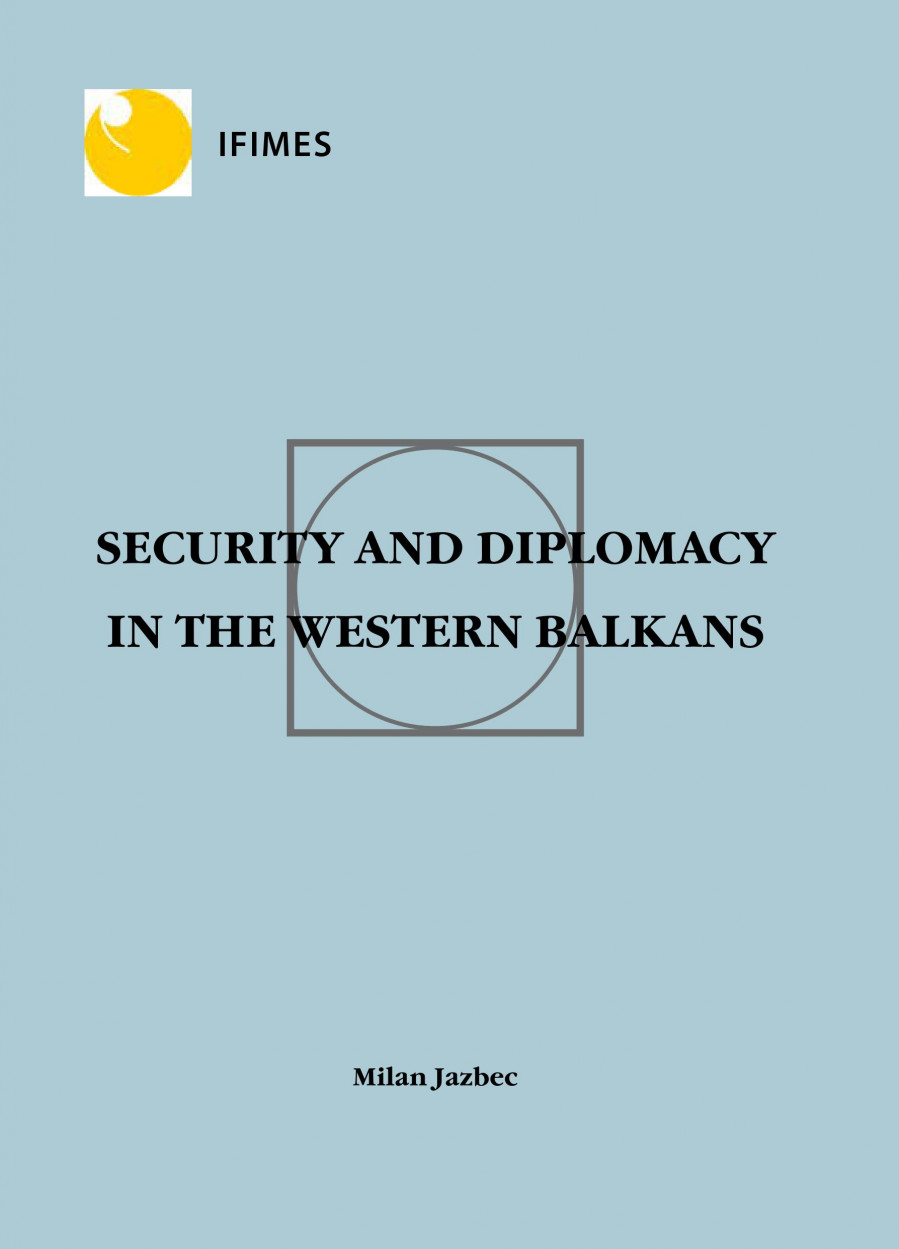
The perspective of the author is that of a government official and diplomat from what Jazbec himself calls “a small country” in the region. But the scope of the book is breathtaking, since it en compasses some of the most sweeping changes emanating from Eastern Europe in the 1990s and analyses international activity in this regard since that time. More to the point, Jazbec focuses on how “a small country” – his country, Slovenia – has made a considerable contribution to the positive forward movement of these developments. As a par ticipant himself in the process, Jazbec provides up-close first hand accounts of how the Slovenians confronted these changes and what they did to assist the international community to deal with them. Milan Jazbec refers to a new “security matrix” in Europe, and, against this background, he traces the emergence of 22 new states from the dissolutions of Yugoslavia, the Soviet Union and Czechoslovakia. He highlights the past activities and the future capabilities of multilateral associations, such as OSCE, NATO, the EU and others. And, an entire section of the book on “The West ern Balkans” gives detailed and thoroughly researched analysis of each of the Southeast European states.
More...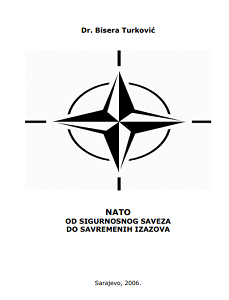
Activities of Bosnia and Herzegovina related to Euro-Atlantic security structures, with the ultimate goal of institutionalizing relations with the North Atlantic Treaty Organization, officially began in 2001 with the expression of the intention of the highest officials of our country to join this organization and activities primarily aimed at the inclusion of Bosnia and Herzegovina in the NATO Partnership for Peace program. This publication presents NATO and its policy in partner countries in order to offer the interested audience more detailed information about NATO with the aim of faster and easier integration into this defense structure. One of the motives for publishing this publication is the chronic lack of information on this matter available in the languages of the peoples of Bosnia and Herzegovina.
More...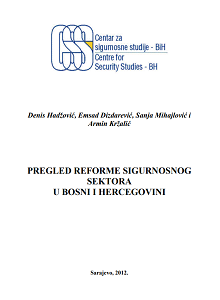
Starting from the fact that security as a category has always been the main goal of every individual, state and social community, and consequently a necessary precondition for their survival, it is necessary to point out the importance and role of security institutions in creating an adequate environment as a precondition for the overall development of society. Various findings from historical and other researches of the development so far point to the fact that security institutions are the basis of every meaningful human existence in society, its need to establish, preserve, develop and design, both its existence and the better functioning of the state.
More...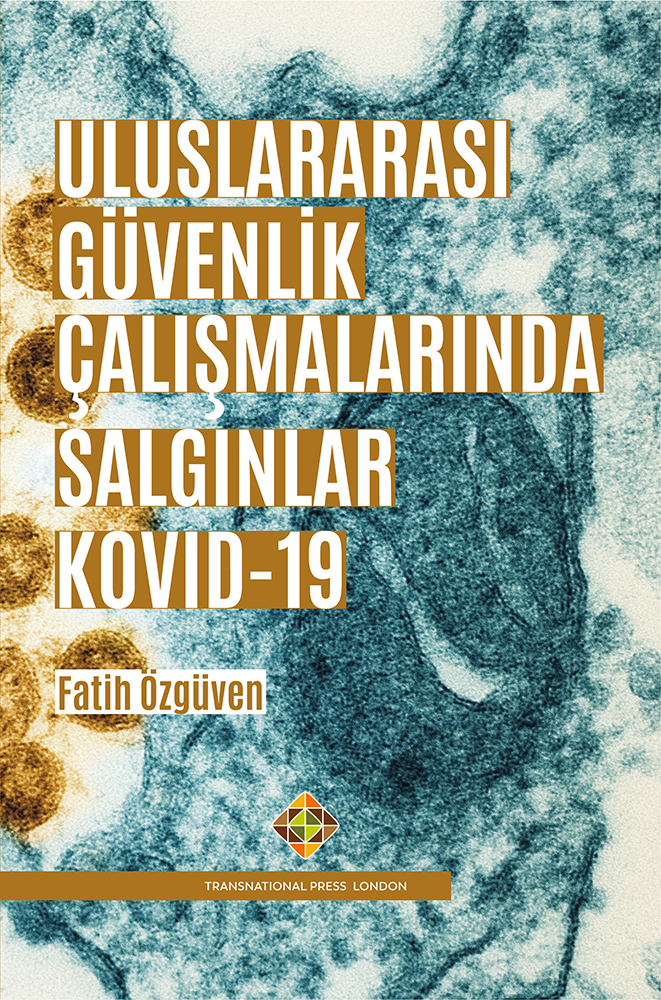
Uluslararası İlişkiler disiplininde Güvenlik Çalışmalarının temeli Soğuk Savaş döneminde atılmıştır. Alan başlangıçta savaş ve güç gibi kavramlar üzerine oluşturulmuştur. Ancak Soğuk Savaş sonrası önemli değişim ve dönüşüme uğramaktadır. Çünkü güvenliğin nerede başladığı, nerede bittiği ve sınırlarının neler olduğu tartışılmaya başlanmaktadır. Tartışmalar güvenliğin sadece savaş ve güç ile açıklanamayacağını çevre, salgınlar, etnik ve kültürel çatışmaların da dahil edilmesini göstermektedir. 21. yüzyılda yaşanan gelişmelerle birlikte güvenlik disiplinde merkezi konumda yer almaktadır. Özellikle günümüz dünyasındaki karmaşık tehditler kavramın tanımlanması, sınırlılıklarının belirlenmesi ve neyin güvenlik olduğu veya olmadığı tartışma yaratmaktadır. Günümüz yeni tehditleri anlamlandırmaya katkı sunan kitap, salgınların nasıl bir güvenlik tehdidi algılandığı? güvenlik çalışmalarında nerede durduğu ve ileride nasıl ve nereye evrileceği üzerine inşa edilmektedir.Yeni tehditleri tanımlarken geleneksel güvenlik anlayışının yanı sıra insan, çevre ve toplumun da güvenliğin bir parçası olduğu küreselleşmenin salgınlar gibi sınırı aşan tehditler yarattığı dünyada kavrama çok boyutlu bakmanın gerekliliği ortaya çıkmaktadır. Bu çerçevede salgınların uluslararası güvenlik çalışmalarında nerede durduğunu açıklayan kitap, güvenlik çalışmalarında Türkçe literatüre mütevazi katkı sunmaktadır. Kitap, yeni güvenlik tehditlerinin nasıl ele alındığını salgınlar üzerinden incelemiştir. Kitapta yer alan hatalar veya eksiklikler tarafıma ait olup okuyucuya yeni ufuklar açması dileğiyle.
More...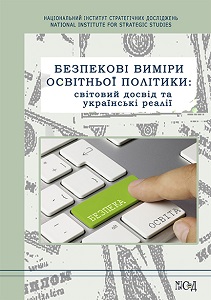
The issues of interrelationships and mutual influences of the educational and security spheres in the conditions of modernization challenges and external threats are analyzed. On the basis of current international experience, approaches to defining the criteria of national security in the educational sphere are proposed. The process of reforming the national education system was considered, and the key problematic points of the framework Law of Ukraine "On Education" were identified. The issue of the introduction of new forms of education as a factor in the modernization of the educational system in accordance with the needs of the economy and national security is highlighted, the state and prospects of the convergence of education, scientific research and innovation are analyzed. For scientists, public administration specialists in the field of education, national security and a wide range of readers who are interested in the problems of the development of education, science, and ensuring national security.
More...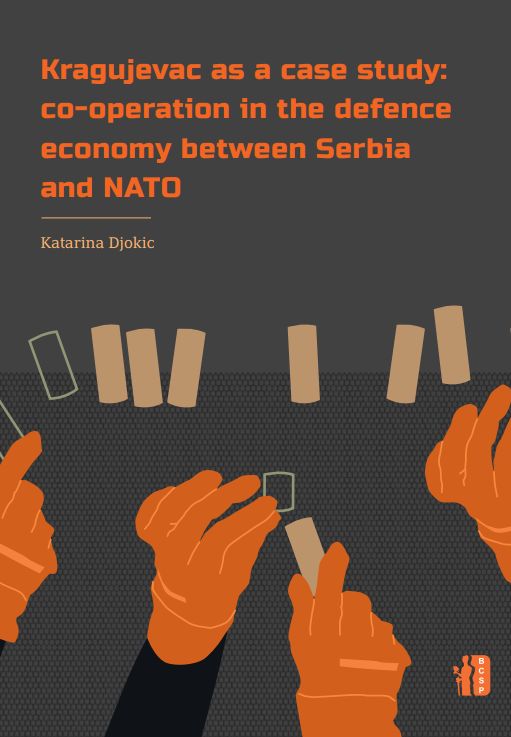
BCSP researcher Katarina Djokic analyzes the possible benefits for Serbia from international cooperation in the field of defense economy on the case of demilitarization of surplus weapons and improvement of the capacities of the Technical Repair Institute Kragujevac. This paper analyses the potential benefits for Serbia of co-operation with NATO in the field of defence economy. Although the Republic of Serbia has formally envisaged a series of mechanisms for co-operation with NATO in this area, practical co-operation is currently limited. One of the most tangible forms of co-operation is the use of funding from the Trust Fund for the Demilitarization of Surplus Ammunition to improve the capacities of the Kragujevac Technical Overhaul Facility (TRZ). This project is therefore taken as a case study.
More...